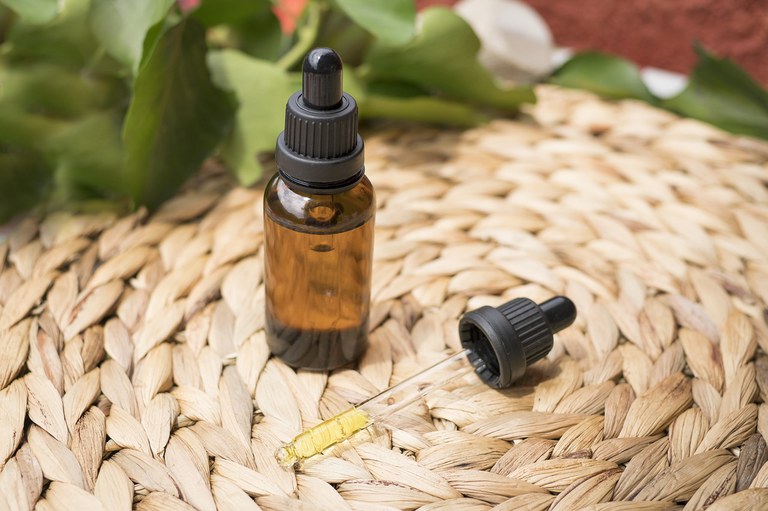Beyond CBD: Understanding Different Cannabinoids
Do all cannabinoids impair your ability to drive?
The curiosity surrounding cannabis and its various compounds continues to grow. From the well-known THC and CBD to the emerging minor cannabinoids like CBG and CBN, users are increasingly eager to understand the spectrum of psychoactive and non-psychoactive compounds. With the plant’s demand booming and research blossoming, it’s important to understand what you’re consuming — whether for recreational enjoyment or therapeutic purposes – and how it may impact safety behind the wheel.
THC: The Classic Psychoactive Compound
Tetrahydrocannabinol (THC) is the quintessential psychoactive cannabinoid responsible for the "high" associated with cannabis use. Its psychoactive effects stem from its interaction with the endocannabinoid system, influencing various cognitive and physiological processes. THC for medical and/or recreational use is legal in many states, although it remains illegal under federal law.
CBD: The Non-Psychoactive Multitasker
Cannabidiol (CBD) has gained widespread attention for its non-psychoactive properties and potential therapeutic benefits. More than 60% of U.S. adults have tried CBD, according to a 2023 Forbes Health survey. CBD interacts with the endocannabinoid system in a way that doesn't induce intoxication, making it appealing for users seeking relief without impairment. From managing stress and anxiety to alleviating pain and inflammation, CBD offers a plethora of potential wellness benefits, attracting users seeking a natural alternative. CBD is legal nationwide.

*CDOT does not promote the use of any intoxicating or therapeutic substance. Many statements in this article about the potential benefits of various cannabinoids are not supported by established scientific research or the FDA. Always confirm the legality of cannabinoid products in your specific legal jurisdiction if you’re not sure.
CBN: The Sleep Aid
Cannabinol (CBN) may not be as well-known as THC or CBD, but its emerging presence in the cannabis scene is notable, particularly for its purported potential as a sleep aid. As THC ages, it gradually converts into CBN, and is said to result in sedative effects. While research on CBN is still in its early stages, anecdotal evidence suggests its potential in promoting relaxation and improving sleep quality, making it a promising option for those struggling with insomnia or sleep disturbances. CBN isn’t completely non-psychoactive, but its intoxicating potency is only one-fourth of THC’s strength.
CBN products derived from hemp and containing less than 0.3% THC are legal in the U.S. However, synthetically-produced cannabinoids and CBN products derived from cannabis remain federally illegal, even if they contain less than 0.3% THC.
CBG: The Mother Cannabinoid
Cannabigerol (CBG), is gaining recognition for its diverse therapeutic properties. CBG is said to exhibit potential anti-inflammatory, neuroprotective and antibacterial properties. Its non-intoxicating nature makes it an option for users seeking holistic wellness benefits without the intoxicating effects associated with THC. CBG is available in many forms, including tinctures, gummies, capsules and topical creams and lotions. It is often coupled with CBD in these products because the two cannabinoids are said to provide complimentary benefits. If the CBG extract comes from hemp strains that contain no more than 0.3% THC, it's legal.
Can you drive when taking cannabinoids?
That depends on the cannabinoid — non-intoxicating cannabinoids in combination with THC could result in impairment. Cannabinoids marketed as being non-intoxicating may be intoxicating at higher doses and could affect individuals differently. Cannabinoids like CBN could also cause drowsiness, leading to impairment even if the consumer is not “high.” Please read the packaging carefully and be aware that even “non-intoxicating” products may have intoxicating potential.
Because of its psychoactive effects, driving under the influence of THC is illegal as it is proven to slow reaction time, reduce focus and temporarily weaken problem-solving skills. Not only that, when someone is high behind the wheel, the chances of a crash increase and the chances of a DUI increase as well.
It may be safe to drive after consuming CBD or CBG since they do not cause impairment; however, as with any supplement or medication, on first use, you should consume it in a controlled environment to see how it affects you. These cannabinoids may have side effects, like drowsiness or fatigue, that should be evaluated before driving.
It's essential for individuals to understand the effects of cannabinoids they consume and refrain from driving if impaired to ensure road safety for themselves and others.
For more tips and information on cannabis and driving, check out the Cannabis and Driving Education Resources page.
